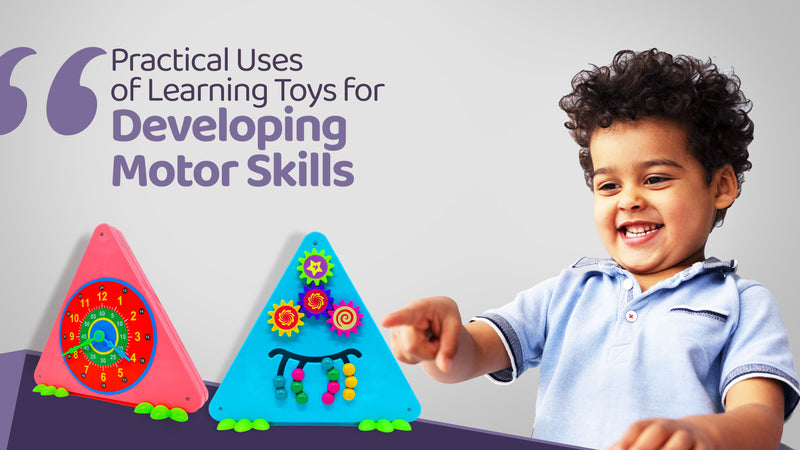As time keeps on speeding up in this world, parents and educators looking forward to finding new ways of developing their children. Some of the tools used for this purpose are those learning toys that assist in having fun while learning. One of the major aspects that are tagged to these toys is the development of motor skills, which is very fundamental in childhood development.
What Are Motor Skills?
Motor skills are some of the essential activities that must enable a child to perform several physical actions accurately and in coordination. They can be broadly categorized into two main categories, namely fine motor skills and gross motor skills. Fine motor skills are characterized by smaller movements, including grasping and manipulating objects, while gross motor skills involve bigger movements such as running, jumping, and balancing. Both of these skills are believed to be integral to the development of a child, and their inability to perform simple tasks may be a reflection of them as they grow. Learning toys have the power to enhance the development of these skills while keeping a child entertained.
- Fine Motor Skills Developing Toys
Probably, the largest role of learning toys in fine motor skill development is prompting kids to pick up, pinch, and play with small objects. An example would be learning toys like puzzle games, blocks, and threading beads, which include FLYi Fun Bead. With these kinds of toys, children are highly challenged to put into application their fingers and hands quite, thus perfecting hand-eye coordination and dexterity.
- Utilize Active Play for Gross Motor Skills
On the other hand, gross motor skills are developed through toys that promote more major body movements.
Examples of such toys include our FLYi Rider, balance boards, and activity mats. These will encourage balance and coordination and ultimately give children the strength of the body. Take for instance the FLYi Rider that allows children to make various balances and coordination, and also it's pretty awesome for having fun out of doors. When children play games that require the jumping, running, and balancing of the body, control and improvement in the larger muscles are achieved and, as a consequence, overall physique. Enhancement of Cognitive and Motor Skills through Puzzle Toys
3 Improving Cognitive and Motor Skills with Puzzle Toys
Puzzle toys offer a great combination of cognitive development and motor skill build-up. In offering FLYi Puzzle Ball, the child is asked to apply their hands in manipulating and solving puzzles, thus upgrading their problem-solving capabilities while fine motor control is promoted. Handling and moving along with sticking or unsticking puzzle pieces requires delicate balance and coordinating skill actions.
Besides building motor skills, puzzle toys also activate the child's brain; hence, brain development toys keep the child busy in thinking and solving. Combining such mental and physical activities makes puzzle toys a gigantic treasure trove for the development of both cognitive and motor skills.
- Learning Toys that Encourage Multi-Sensory Development
Some playthings go beyond physical movement; they provoke all types of senses to provide a more complete developmental experience. Toys whose sounds, textures, and colours add layers upon layers to learning are even better. For example, an activity triangle such as the FLYi 8-in-1 contains different elements such as an abacus, gear games, and whiteboard activities appealing to both fine motor skills and cognitive capabilities.
These toys insist on using the hands and eyes for learning, hence enhancing the full involvement during learning. The multi-sensory approach, not only empowers the motor skills but also increases the knowledge acquisition. Incorporation of educational toys into daily routines helps in developing the understanding and memories of concepts.
It is true and fun for children to progress their fundamental motor skills. Threading beads, solutions of puzzles, scooters, and multi-sensory play are just a few examples that make an enormous variety of educational toys for your child to experience thousands of learning activities. Be it in the building of fine motor skills through creative tasks or gross motor skills through active play, with learning toys, you're giving them a great foothold for all-around development.


